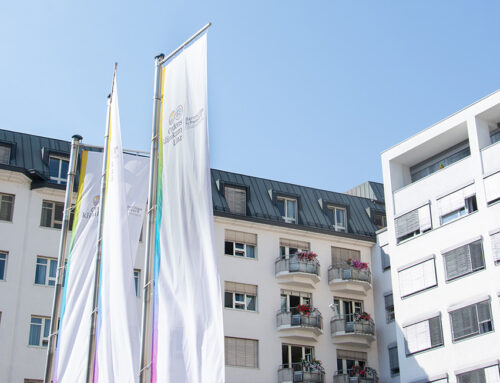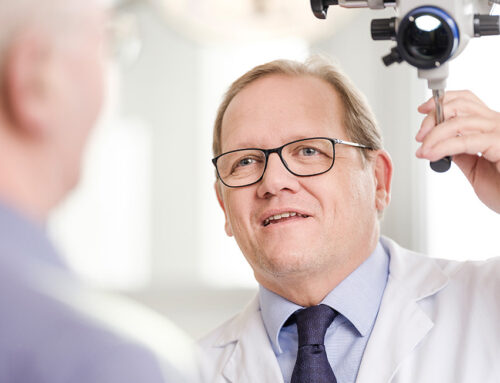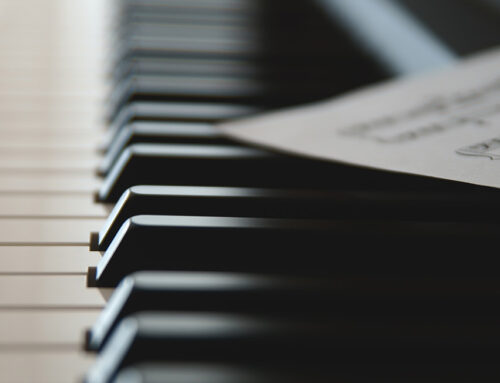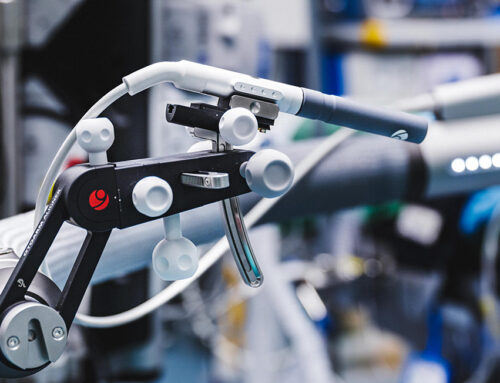Prof. Christoph Arnoldner on hearing loss gene therapy and the medication AC102
Prof. Christoph Arnoldner on his priorities as the new Head of the ENT University Hospital Vienna and on current research projects that could revolutionize hearing therapy from the ground up.
Primary source: Podcast “Hörgang” with Martin Krenek-Burger
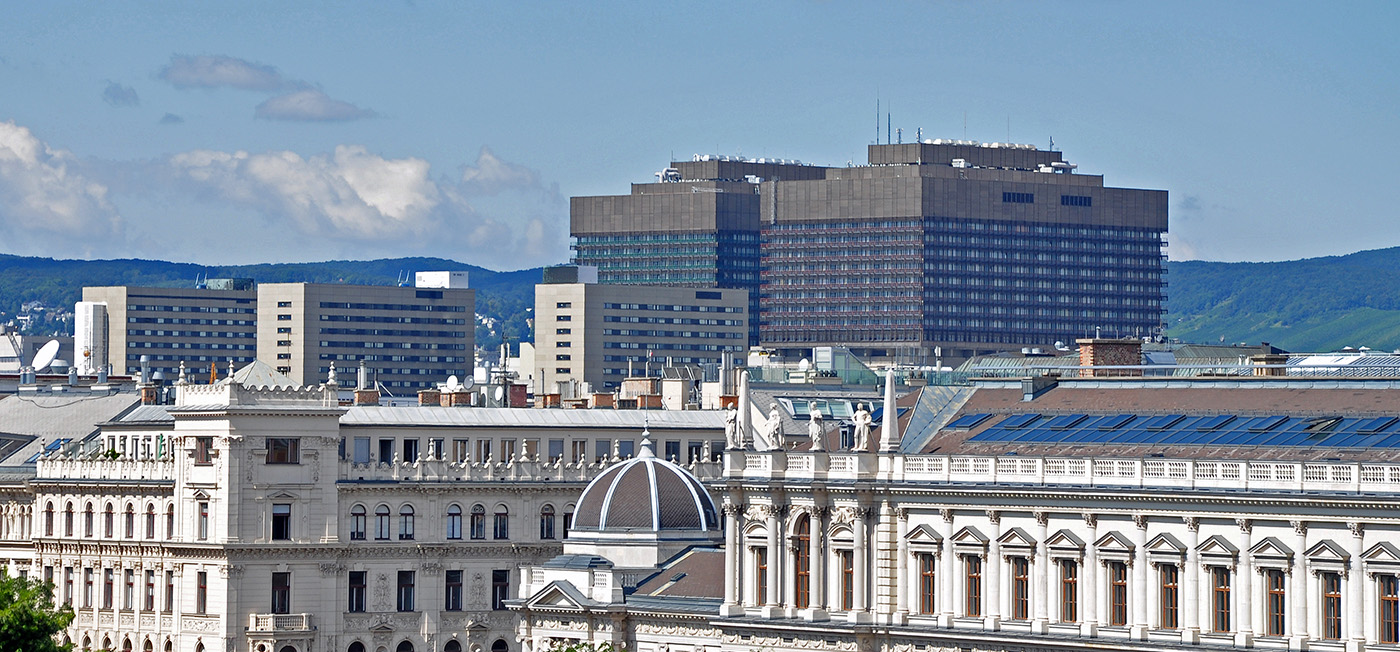
Prof. Dr. Christoph Arnoldner, an expert in otology and skull base surgery with international training and experience, is well known to many CI users as a CI expert and surgeon. Since 2022, he has been the head of the Christian Doppler Laboratory for Inner Ear Research in Vienna, which he founded. Together with his team, he researches active substances for the treatment of hearing disorders.
The various therapies which have been developing there and in other research centers could fundamentally change the way hearing disorders are treated and will offer new opportunities for many people affected in the future. But let's face it: outside of the studies, none of these therapies are currently available for people who are currently affected. And the cochlear implants (in short CIs), will remain an important option in the future. Prof. Arnoldner explains in the conversation what might actually change in the future. Since the beginning of May, he has been the primary director of the ENT University Hospital Vienna.
MK-B: You are now head of the ENT University Clinic in Vienna—what are your priorities?
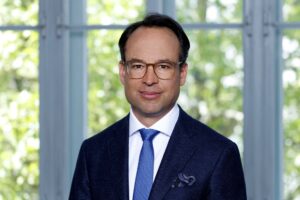
Prof. Dr. Christoph Arnoldner, founder and director of the Christian Doppler Laboratory for Inner Ear Research in Vienna, has been the head of the ENT University Clinic Vienna since May 1, 2025. ©MedUni Vienna/feelimage
Arnolder: I am very pleased to take over a clinic where we can offer patients a wide range of state-of-the-art treatments and care. We do major surgery for cancer, as well as cosmetic surgery or cochlear implant surgery for hearing loss. We operate on children as well as elderly patients.
Another focus at the university clinic is the training of physicians. This includes continuing education in internationally accredited, one- to two-year clinical fellowship programs at top clinics in Canada, USA, Australia and England. The knowledge gathered in this way is intended to benefit the optimum patient care.
It is very important to me to support research - especially those areas which do not have the status they should have yet. We are trying to intensify research by cooperating with other clinics. My own research is focused on hearing. It is a question of using new drugs, new implants or gene therapy to restore hearing.
MK-B: What sets the Vienna ENT Clinic apart?
Arnolder: We are the oldest ENT clinic in the world, thanks to Adam Politzer, an important otolaryngologist in the 19th and early 20th centuries. And also the first multi-channel cochlear implant, with which we can really restore the sensory organ of hearing, was used in Vienna.
But we can not only live out of the past: in fact, we are now among the best clinics in the world in all areas of ear, nose and throat medicine, in terms of patient care, but also increasingly in terms of research.
MK-B: Translational research, the transition from research to practice, is a central goal of your research laboratory.
That's our strength as clinicians-scientists. Otorhinolaryngology is not a core field and also deals with very fine structures. Many processes such as hearing disorders, tinnitus, loss of smell, allergies cannot yet be understood satisfactorily. As clinicians, we know what the problem is. We look at this in a targeted way in research and we do everything we can to get the results quickly to the clinic.
There are about 1.5 billion people worldwide who have a hearing disorder - about the same number as high blood pressure. There are over 500 treatments for high blood pressure, but not a single approved drug to restore hearing. It's highly unsatisfying when we have to say to patients with sudden hearing loss and tinnitus, "We don't really know what's happening in your inner ear right now."
We want to better understand what happens in the inner ear in case of hearing loss! And we want to find new drugs to offer our patients something!
MK-B: Together with your team, you will carry out research on the drug candidate AC102, which gives new hope in the case of acute sudden hearing loss.
For the moment, we are giving high doses of cortisone in the event of sudden hearing loss or tinnitus, but we must admit that the results are often modest. Almost ten years ago a very small pharmaceutical company from Germany, a spin-off of the Charité, approached us. They asked us to look at their new active ingredient: the cryptic-sounding AC102 - AC stands for "AudioCure," the company behind this active ingredient.
In recent years, we have actually taken this active substance from the Petri dish, via animal models, up to now to a Phase 2 study. This means that this active substance is now being tested in a large multicenter study in many countries in Europe on patients with an acute sudden hearing loss. We are hopeful that this medicine could actually change the treatment options in the long term.
GG: So why have medical professionals given cortisone?
What exactly happens in the inner ear during sudden hearing loss has not been known to us to date and is also one of the topics we would like to better understand in our laboratory. It is thought, however, that inflammation in the inner ear triggers the hearing loss in at least some patients, and that's where cortisone comes in. Cortisone is ultimately a natural hormone in the body that is very effective in reducing inflammation, but it has no beneficial effect on nerve cells and fibers.
MK-B: How does the new approach differ?
AC102 not only has anti-inflammatory effects, but also actually protects the nerves. Hearing loss has a lot to do with the fact that the approximately 13,000 micrometer-sized sensory cells in the ear - once damaged - no longer grow back. We can protect these sensory cells with AC102, specifically the transition from the hair cell to the nerve fiber. This affects hearing loss and regeneration.
GG: For existing CI users or for untreated patients who have been deaf for a long time, would it not be expected that AC102 will restore their hearing?
Right! If AC102 is given early, hearing should regenerate as described due to a very positive effect on neurons, which has been observed. In addition, AC102 creates much more effective residual hearing protection than the currently used cortisone in the context of cochlear implantation, which should bring a decisive advantage.
MK-B: How does AC102 help to maintain the residual hearing?
We implant CIs in patients in whom hearing aids no longer work. In recent years, however, it has been shown that CIs also help patients who still have some residual hearing. But we want to preserve that residual hearing, because preserved residual hearing and cochlear implant are better together than a cochlear implant alone.
In cochlear implantation, we insert an electrode array into the cochlea. This opens up the delicate space of the inner ear: this normally makes you deaf. So we need to develop techniques for preserving the residual hearing. These include fine surgical techniques: opening the cochlea particularly carefully, inserting non-traumatic electrode array, but also administering substances that protect the inner ear structure.
This is where AC102 comes into play: when we insert a foreign object into the inner ear, it inevitably leads to inflammation. AC102 slows down this inflammatory response and protects the connections between hair cells in the inner ear and nerve fibers. The Phase 2 study of patients with sudden hearing loss is currently underway. If these results are positive, a phase 3 study will follow, and the drug will be evaluated for other indications, for example, to protect residual hearing during cochlear implantation.
MK-B: Since the previous year, there have also been a growing number of studies showing that gene therapy can be an approach to hearing loss.
Until recently, in patients with sudden hearing loss we only used imaging tests (NB: in addition to audiological). Genetic background was also looked at only in selected cases. Today, investigation of genetic background is one of the standard tests. And we're really trying to establish this right now because this genetic background plays a big role. Not all hearing loss types are the same.
Specifically, the first children with otoferlin deafness, a very special congenital hearing disorder, received gene therapy and are now hearing. (NB: So far, we know of more than 200 forms of genetic deafness.[1] Otoferlin deafness is one of them, with around 200,000 people worldwide, it is classified as only "rare." But for this group of affected individuals, there is now hope.)
Children with otoferlin deafness have normal inner ears, normal hair cells in the inner ear, but the hair cells lack a single protein: otoferlin. This does not release the messenger that we need to hear. The new therapy brings the lack of genetic information into the hair cells of the inner ear, the messenger is released again and actually: these children hear even without a cochlear implant!
MK-B: Where do you see the greatest potential in the treatment of hearing disorders: in implants, medical therapy or genetic modifications?
The future is likely to be a combination. We will continue to need CIs to help many patients. But there will be selective genetic types of hearing loss in which gene therapy will play a major role. And there will be a combination in which, with the help of gene therapy affecting the nerve cells of the inner ear, we can help CI patients to hear better with their implants.
[1] Prof. Dr. Ellen Reisinger Gene Therapy Heals Children with Congenital Deafness | Tagesschau.de
We would like to thank Martin Krenek-Burger, Deputy Editor-in-Chief of Doctors Week, for the exciting questions at the Podcast Hörgang and especially Prof. Christoph Arnoldner for the opportunity to ask further questions. We would also like to thank the publishing house Springer-Medizin and its partner MedUni Wien for allowing us to take over large parts of this podcast episode and adapt them for our readers. The complete conversation "Hope for listening" with Prof. Dr. Christoph Arnoldner can be found in the podcast series Hörgang at www.springermedizin.at, on all popular podcast platforms as well as on spektrum.de.



